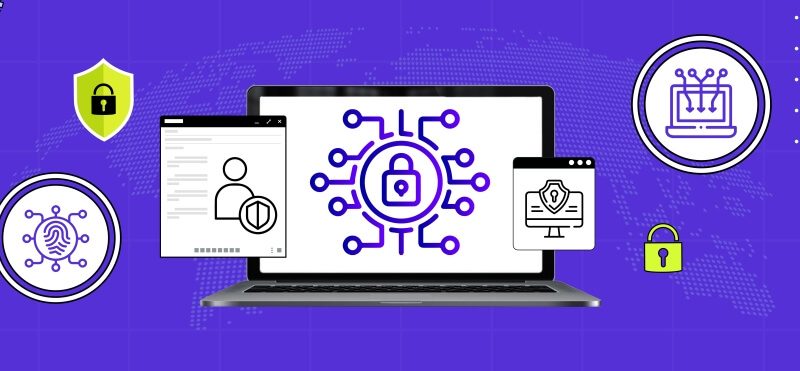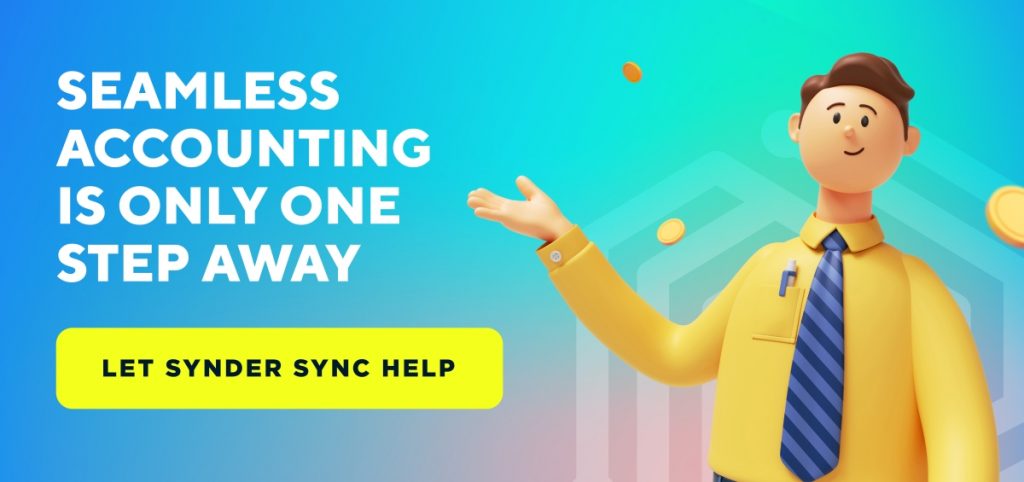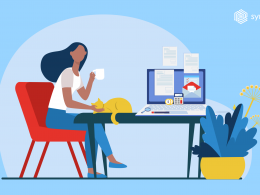Moving away from a paper-based office has been welcomed by accountants worldwide. Working online has allowed accountants to take on more clients, save hours of time every day, automate many of the repetitive tasks, and enjoy unprecedented freedom that comes with having a digital office.
However, there’s a price to pay – it all comes down to accounting cybersecurity, or, in broader terms, making sure that your clients’ data is well-protected from cyber-threats, such as personal data theft, identity theft, viruses, malware, and different types of breaches. It’s not easy, as attackers are continuously engineering new ways of how to get access to sensitive data.
This article will list some of the most dangerous types of threats that CPAs face, as well as security measures that can be taken in order to protect your accounting company from those security breaches, keeping the client data safe.
Contents:
1. What makes accountants vulnerable in terms of cybersecurity?
2. What are the most common cyber threats for an accounting firm?
3. What can you do for accounting data security?
What makes accountants vulnerable in terms of cybersecurity?
It seems obvious that accounting comes with a host of cyber threats as it deals with the most valuable financial information which is extremely likely to be breached. With rapid advances in technology, cyber attacks become more sophisticated and more dangerous. According to statistics, in 2022 the number of cyber attacks globally increased by 38% due to more agile hacker gangs that often target tools used in work-from-home environments.
In 2022, the IRS annual identity theft report recorded nearly 8 million leads (reports of suspicious activity) and the ISAC (Identity Theft Tax Refund Fraud Information Sharing Mission and Analysis Center) partners shared the historical number of 1,345 alerts over 9,000 times as they analyzed trends of suspicious activity.
The sheer number of sensitive financial information that a typical accounting firm has at its disposal makes it a probable threat. Cybersecurity risk for accountancy is closely linked to the breach of such data as account numbers, bank account numbers, credit card numbers, passwords, usernames, social security numbers, transaction details, and the like.
If a cyberattack is targeted at an accounting firm, the losses are not just financial. Here at stake is the name and reputation. The affected clients are probably going to share their experience, while a few cases may even leak into the press. For organizations concerned with ensuring their domain’s integrity and preventing spoofing, using a domain analyzer tool can help uncover vulnerabilities like weak DMARC, SPF or DKIM settings before attackers exploit them. An accounting firm’s reputation losses are as pricey as the economic losses caused by a cyberattack, and can be extremely difficult to cope with.
What are the most common cyber threats for an accounting firm?
Cybersecurity specialists anticipate 2023 to be the beginning of a new age of cyber assaults, which are expected to rise dramatically. They also note that the character of cyber attacks will likely change nowadays as we witness new dangers and IT advancements.
Fast growth in digital violations has turned into a recognizable pattern that has been influencing a wide range of businesses. Below, we’ll give an overview of the most typical cyber threats for accountants.
Phishing Attacks
Phishing assaults took off in 2022, with the Anti-Phishing Working Group (APWG) reporting about 3.5 million.
What exactly is phishing? It’s defined as any type of malicious activity that happens via email to deliver malware and steal sensitive financial information. These emails have been becoming increasingly difficult to spot, as they can expertly disguise themselves as office communication (among popular phishing email topics are software updates and other IT communications, general office communication, employee wellness), and more general things like retail, shopping, or simply news.
When you click on a link in such an email, it can give attackers a foothold in your corporate network with access to personal data (employee credentials, social security numbers), intellectual property, and financial information (which includes anything from credit card data to confidential tax reports). To help prevent these intrusions, you can run an EasyDMARC DMARC lookup to see whether your domain has an active DMARC policy and identify any security gaps to fix.
Ransomware attacks
The threat of ransomware, in which hackers attempt to hold a user’s data hostage until a payment is made, has been around since the Internet became a global phenomenon. However, specialists are warning that this malicious tactic is expected to become an even greater hazard in 2023, with cybercriminals adapting to the protective measures that people have been relying on.
Ransomware is dangerous for accounting practices as it can infect computers, networks, and servers, which can result in a loss of sensitive financial data and a need to redo months worth of accounting work.
Outdated software can make your practice vulnerable to attackers.
Single-factor authentication protocols, weak passwords, and weak perimeter defenses with open access from the Internet can also be a dangerous factor.
What can you do for accounting data security?
Protection from phishing attacks
When it comes to protecting yourself from phishing attacks, the following steps can help you:
- Double-check any links or use a VPN and proxy before you click on anything in an email. Remember to hover over it to see if the destination URL is what it’s claiming to be. You can also make a habit of typing out the links manually instead of clicking on them.
- Carefully examine each sender. When you get an email from an unknown sender, especially if it asks you sensitive questions about financial data, or invites you to click on a link, make sure you understand what this refers to. This holds especially true for any emails asking you to send/receive/transfer money or information about such operations.
Ransomware detection
It’s highly recommended that you invest in professional antivirus software and a fitting cloud firewall, only use licensed software as a rule and take precautions when purchasing accounting software in general, as well as accounting software for Mac, by paying attention to the security measures they have implemented in order to protect their users.
Multifactor authentication
Top security experts recommend that everything in your practice has at least a two-factor authentication protocol protecting the confidential information. Passwords containing dictionary words and easy-to-guess numbers aren’t suitable when it comes to financial data.
Pro tip: Accounting professionals can use password managers, such as LastPass and authentication tools like Duo to manage multifaceted passwords.
Accounting data backup
Securing your data, operating systems, and applications in case of a cyber intrusion can also be executed by a resilient back-up plan. It ensures that data is stored in the cloud and backed up regularly. Those virtual backup copies will be available in a matter of minutes and let you restore the most sensitive information should a cyber incident or another problem occur. It proves to be truly vital during tax season, when an accounting firm requires a reliable emergency back-up plan if some or all of the data is compromised. Regular backups guarantee that you lose minimum to no information in case of an incident.
To further strengthen your cloud-based security posture, consider implementing a CSPM tool for your security needs. This helps proactively identify and remediate misconfigurations that could expose backup data or sensitive financial information.
Clear policy
Legally, the Gramm-Leach-Bliley Act of 1999 requires all financial institutions to maintain information security plans. It’s important to understand that tools don’t always provide complete solutions, and it’s helpful to create a very clear data security policy, covering all key IT aspects, and to annually review it, making changes when necessary.
It’s paramount that your staff is trained accordingly to ensure compliance and safety. For professionals looking to deepen their expertise in protecting digital financial data, pursuing an online cyber security masters can provide the advanced skills needed to address evolving threats
Information about necessary requirements can be found in IRS Publication 4557, Safeguarding Taxpayer Data. The IRS also created a new Publication 5293, Data Security Resources Guide for Tax Professionals, which compiles numerous resources from IRS.gov.
Professional accounting software
Most professional solutions understand the risks that accountants face, and provide extra security measures. So when investigating software options, ask a potential provider about special measures they’ve taken to protect accountants from cyber threat.
Let’s look at the example of Synder, one of the leaders on the market of top-notch automated accounting solutions. It streamlines accounting by offering 25+ integrations with Shopify, Stripe, Amazon, Paypal, etc., connecting all sales channels into one system, offering the one-of-a-kind accounting software designed specially for e-commerce, supporting all kinds of data sync – daily entry or per transaction syncs, creating transaction reports, invoices, and importing historical data.
You might want to read more about the benefits of creating recurring invoices, daily and per transaction syncs, syncing historical data, and the specifics of reconciliation.
What also makes Synder software stand out is that the Synder team took all possible measures to ensure that your clients can safely enter their sensitive data when connecting payment processors to accounting platforms, with you and your colleagues having no access to their payment processor passwords. Synder is able to guarantee this by using machines end-to-end to ensure no man is ever in the loop for any of clients’ data. No human intervention into the process warrants not only accounting accuracy but also cybersecurity of sensitive data, which surely protects you in case there’s a problem with your client’s payment platform security.
Synder also guarantees data cybersecurity by going through a third party security audit. Synder is SOC 2 Type 2 certified, which means that the company undergoes security tests that show how a cloud-based service provider deals with sensitive clients’ data and how safe and effective its security protocols are. The Service Organization Control (SOC) 2 Type 2 report assures that a company meets all the requirements of the Trust Criteria of Security, Availability, Processing Integrity, Confidentiality and Privacy and proves that a service provider can protect data over an extended time period.
Additionally, Synder employs all the industry encryption standards and has independent PEN testing conducted regularly. The company is GDPR, HIPAA, and CCPA compliant. The software compliance with these Acts prevents your clients’ billing and payment information from getting into the wrong hands, ensures this information is accessible only to those who are authorized to use it and guarantees unprecedented control over the ways of collecting, storing and using your clients’ personal data.
Conclusion
It’s no secret that an accountant in 2023 is a business adviser. It’d be fitting this role even better if you could train your clients to take similar measures in order to protect their data. The better you’re protected, the better they are – and it goes both ways.
Smart security measures taken in advance can minimize the risks of data theft and ensure that your clients and their businesses are protected.
And also remember to use only secure trustworthy software. Professional accounting solutions like Synder software not only help you ease up your accounting routine by automating the mundane process but also guarantee that all your and your clients’ most sensitive data remains unbreached.
Want to secure your accounting practices by using reliable accounting software? Take advantage of Synder’s free trial or book a demo.







